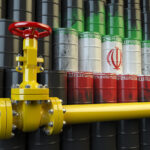Earlier this year, the U.S. and the E.U. began a sanction regime against Russia in response to the ongoing crisis in Ukraine. The sanctions are being used to target specific industries in the Russian economy, particularly oil and gas, the defense industry and the banking sector. Some companies, such as Russia’s oil company Rosneft (ticker: ROSN), have hired lobbyists to help work around sanctions. Rosneft, for example, has hired London-based Zaiwalla & Co. to protect its interests in the U.S., the Wall Street Journal reported.
Earlier this month news came that Russia and China plan to expand their already 38 billion cubic meter (1.34 trillion cubic feet) gas deal with an additional 30 billion cubic meter (1.06 Tcf) for the next 30 years, and Russian oil companies like Lukoil (ticker: LUKOY) are moving into the Middle East markets.
Oil & Gas 360® asked Dr. Deborah Palmieri, Honorary Consul General of Russia in the State of Colorado, for her opinion on today’s economic situation in Russia and what future outcomes might be.
OAG360® asked Dr. Palmieri whether she expects more Russian oil and gas companies will seek the help of Western-based lobbyists, or if they will simply seek out new customers.
Palmieri: “We are probably going to see some combination of those. Russian companies will seek out lobbyists where sanctions are not as written in stone, but they will find new markets, too. Already you’re seeing a consolidation of relations between Russia and China over gas. You may also begin seeing deals done under different flags in order to avoid the sanctions.”
In the space industry, some companies like Russia’s Energomash have looked for ways to go around the sanctions. Energomash, which makes the RD-180 rocket engines that the U.S. military uses in its Atlas rockets, has been using various techniques, including middlemen in order to continue selling their rockets in the U.S. One of those middlemen, a five-person company called RD Amross, recently came under fire for marking up the price of the engines by an average of $23.4 million per engine, Reuters reported.
“I don’t know if we’re going to see the same kind of success at avoiding sanctions [in the oil and gas industry] as we have seen in the space industry, but there is too much money to be made for people to leave this alone. It will be a complicated mix of companies backing out while others move forward despite sanctions.”
Russian oil output rose to a near post-Soviet record in September of this year, Reuters reported. The nation increased output 0.7% to 10.61 MMBOEPD, a figure that was within 0.3% of a record in January. These increases in production come in spite of sanctions meant to damage Russia’s oil and gas industries.
OAG360® asked Dr. Palmieri about future sanctions against Russia.
Dr. Palmieri said she believes there will be more strong rhetoric, but less actual movement towards new sanctions. “You’re going to hear lots of rhetoric from the State Department, and the U.S. might act unilaterally with the verbal support of the Europeans, but ultimately the business community does not want these sanctions.”
Despite recent deteriorating official relations between Russia and the U.S., Dr. Palmieri believes relations will be better in the future, but not anytime soon. “What we know about people and economics is that they want stability,” Palmieri said.
Even as Western companies pull out of partnerships with their Russian counterparts, Russia’s oil and gas companies continue to push forward. In the arctic, Rosneft has said it plans to continue drilling the Kara Sea, a billion-barrel oil discovery according to Bloomberg, despite ExxonMobil’s (ticker:XOM) decision to pull out. Russia’s state-owned gas giant Gazprom (ticker: OGZYP) has made deals with China over the next 30 years to export in excess of 2 Tcf of natural gas to the increasingly energy-hungry giant. Sanctions or not, Russian oil and gas companies are going to find profitable routes forward.
Dr. Deborah Palmieri is currently the Honorary Consul General of Russia in the State of Colorado and president of Deb Palmieri Russia LLC. Dr. Palmieri served as president and CEO of the Russian-American Chamber of Commerce® from 1994 to early 2007. Dr. Palmieri holds a Ph.D. from Columbia University in International Relations and Russia.
Important disclosures: The information provided herein is believed to be reliable; however, EnerCom, Inc. makes no representation or warranty as to its completeness or accuracy. EnerCom’s conclusions are based upon information gathered from sources deemed to be reliable. This note is not intended as an offer or solicitation for the purchase or sale of any security or financial instrument of any company mentioned in this note. This note was prepared for general circulation and does not provide investment recommendations specific to individual investors. All readers of the note must make their own investment decisions based upon their specific investment objectives and financial situation utilizing their own financial advisors as they deem necessary. Investors should consider a company’s entire financial and operational structure in making any investment decisions. Past performance of any company discussed in this note should not be taken as an indication or guarantee of future results. EnerCom is a multi-disciplined management consulting services firm that regularly intends to seek business, or currently may be undertaking business, with companies covered on Oil & Gas 360®, and thereby seeks to receive compensation from these companies for its services. In addition, EnerCom, or its principals or employees, may have an economic interest in any of these companies. As a result, readers of EnerCom’s Oil & Gas 360® should be aware that the firm may have a conflict of interest that could affect the objectivity of this note. The company or companies covered in this note did not review the note prior to publication. EnerCom, or its principals or employees, may have an economic interest in any of the companies covered in this report or on Oil & Gas 360®. As a result, readers of EnerCom’s reports or Oil & Gas 360® should be aware that the firm may have a conflict of interest that could affect the objectivity of this report.







